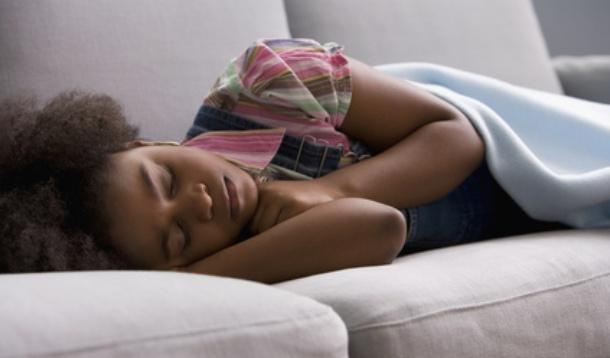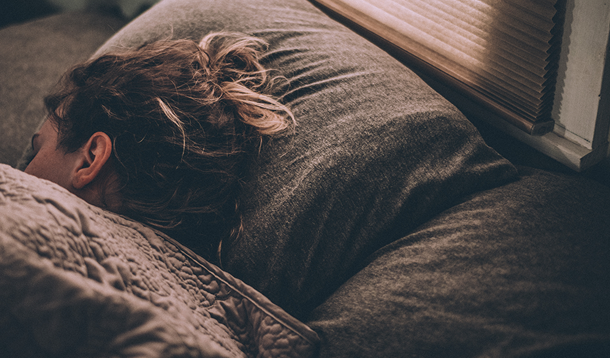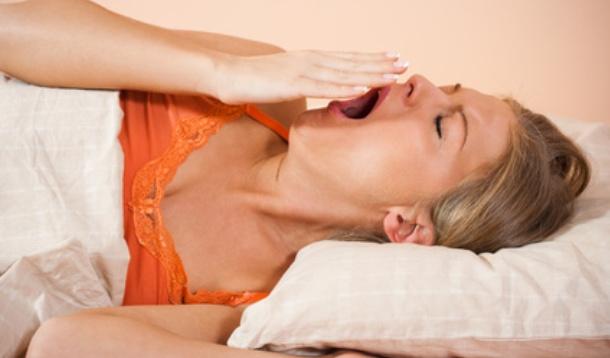
Recently a top trending hashtag was #IWouldSleepMoreBut - top trending as in over 21.4K at one point. All age groups, both male and female were joining in on the conversation and sharing the reasons of why they rob themselves of sleep.
At the top of the list were two things near and dear to all of our hearts:
It’s no secret that tech is invading our sleep sanctuaries and making their way into our bedrooms. Our computers, TV’s, tablets and phones have become the new bedtime routine and binge watching has replaced speed reading. Technology and being connected 24/7 is one of the leading factors in why our society is sleep deprived and many of us struggle with breaking the habit to disconnect. The irony is not lost that many of these tweets were happening very late at night on Twitter and past most people’s bedtime.
Tech Sleep Tip! Create a family docking station within your home. Set up an area outside of your bedroom where your entire family can plug in and charge overnight. This keeps everything organized and out of your sleep environment. Remove the temptation and go to sleep.
How many of us go to bed exhausted only to find that the moment our head hit’s our pillow our brain suddenly wakes up and starts talking. Loudly. The inability to quiet the mind was a clear struggle for most and a consistent issue I hear with my clients. Incorporating relaxing steps at bedtime like meditation and even calming colouring can help lower the heart rate and calm the mind, making it easier to drift off to sleep.
Mindful Sleep Tip! While meditation and mindful breathing can work to help you relax before bedtime practicing consistent sleep patterns can help prepare your body and mind for sleep. Going to bed and waking up at similar times each day helps to synch your body clock making it easier to fall asleep at night. This should always be the first step in practicing proper sleep hygiene.
Many of us wear sleep deprivation as a badge of honour. We can work harder and create more if we sleep less but what we don’t realize is we are putting our jobs or school work ahead of our health, and without your health what do you have? Getting proper restorative sleep and a sufficient quantity of sleep will help you learn better, remember more, and thrive at the project at hand. Adults are overworked and overtired and need to stop wearing their sleep deprivation as a badge of honour. Teens need to be better educated on their own sleep needs and boundaries need to be set to make sure our teens are getting the sleep they need. Parents need to make sure their teens aren’t unnecessarily overscheduled and be better role models when it comes to technology and bedtime. Use a family docking station to create those boundaries – see above please.
If having children wasn’t a reason why people weren’t sleeping more it would be weird, right? Parents unite!
But having tiny humans wasn’t the only cause for sleep loss…
Now it's your turn! Answer the question - #IWouldSleepMoreBut...
I provide free child and family sleep support on my Facebook page. I invite you to join our sleep community as I work towards Good Night Sleep Site's mission of a healthier rested family unit. For more sleep tips please visit Good Night Sleep Site and visit me on Instagram and Twitter. Join our movement and #BringBackBedtime.
#YMCSleeps is tackling sleep issues as they relate to tired and stressed parents, and tired kids too – because quality sleep is not a once-and-done project; it’s an ongoing and ever changing endeavor.
Follow on Twitter, Instagram, Pinterest, and Facebook, where we'll be sharing sleep stories and advice using the #YMCSleeps hashtag.
So here’s to more – and better– sleep!


When you and sleep are going through a rough patch it doesn’t mean that you have to put on the brakes and break up. Like any healthy relationship it’s important to put in the work to maintain it every now and then.
While getting dirty in the bedroom helps maintain some relationships, keeping your sleep hygiene clean will help solidify your union with sleep.
But what is Sleep Hygiene?
Sleep hygiene are steps that you should practice to promote ongoing healthy sleep. Some important sleep practices that you should implement are:
1. Set your sleep pattern and stick to It. It’s important to go to bed and wakeup in the mornings around the same time to keep your body clock in synch. This can be a tough step for some. When we synch our sleep with our natural sleep rhythms and internal 24-hour biological clock we are able to achieve the best restorative sleep possible and going to bed and waking up become easier.
Did you know? A tell-tale signs of sleep deprivation includes falling asleep within five minutes of going to bed (it should take 10 to 12 minutes) and needing an alarm clock to wake up.
2. Protect the amount of sleep you need. Adults typically need 7-8 hours of consolidated restorative sleep per night. We all have a personal baseline for rest and our “Basal Sleep Needs” is the amount of sleep our body needs each night. While it’s true that some can function on 5-6 hours of sleep per night, it’s a small percentage of individuals that can do so. So if you think it’s you, it’s probably not. When we don’t meet this need on a regular basis we accumulate a “sleep debt." This is the amount of sleep you owe your body - just like the amount of money you owe the bank with a financial debt.
Did you know? For one hour of sleep lost you need 24 hours to recover. You can’t erase your debt with just one morning of sleeping in.
3. Turn off tech and keep it out of the bedroom. In my opinion this is one of the main reasons why we live in such a sleep deprived society. Whether we are working late, checking Facebook, or binging on Netflix, we are always connected with our faces in front of a screen. It’s important to remove over stimulating activities before bedtime. Turn off the TV, the internet, your iPad and iTouch, whatever you use. That blue LED light from the screen can really over stimulate the brain and turn the sleep switch off. It suppresses melatonin and makes it difficult for you to fall asleep. So 60 minutes before bedtime, 90 minutes if you can do it turn off tech.
4. Practice a consistent bedtime routine. We create consistent and calming routines for our little ones – change them into pj’s, dim the lights, set a soothing environment, and read them a bedtime story. The same should be done with your own bedtime routine. Join the movement and #BringBackBedtime. A good night’s sleep always starts with a great bedtime routine.
5. Set up your bedroom for sleep success. Your bedroom should be for sleep and sleep only. Start off by removing distractions like television, workout equipment, and work papers. It’s important to create a sleep sanctuary and for you to be comfortable in your sleep environment.
Sleep Tip! Promote a dark, quiet, and cool sleep environment for ultimate sleep success by installing black out blinds, introducing a white noise machine, and choose natural fibers like breathable cotton bedding that will keep you cool and dry.
6. Avoid caffeine, nicotine, and alcohol. Caffeine like coffee, tea, soda, and nicotine can act as a stimulant that can keep you awake. While alcohol can help in you dozing off it can cause more fragmented sleep throughout the night.
7. Limit daytime sleep. Limit daytime sleep to only 30 minutes if you feel like you need to take a nap and make sure that you are awake for at least 4 hours before your bedtime. Remember sleeping throughout the day could cut into your sleep at night when it’s needed the most. It’s always best to protect your bedtime and night sleep.
Seek professional help if problems persists. If you are still struggling with sleep and waking up tired even after having a full night of sleep, or falling asleep throughout the day, or a frequent snorer it’s best to discuss your issues with your Doctor to see if a sleep study should be arranged. This could be a red flag of sleep apnea.
Practicing these sleep hygiene steps consistently can help rebuild your relationship with sleep and keep you well-rested for a lifetime.
RELATED: How Your Hormones May Be Affecting Your Sleep Quality

It is common to hear sleep issues discussed in a community of 40+ year old women. According to stats Canada, 35% of women claim to have difficulty falling and staying asleep. Reasons for this vary, but two recurring issues show up in research that hormones and inability to quiet the mind can play major roles in sleep loss for women.
Throughout their lifetime, women’s levels of hormones will change several times. They will change during their menstrual cycles, pregnancies, and eventual menopause. Difficulties in sleeping throughout these times can create poor sleep habits, which can be tough to break and, in turn, create a large sleep debt for women.
As hormone levels decline during menopause sleep can become disrupted and this decline can happen a year before the woman actually goes through menopause – during the premenopausal state. It’s during this time where women can experience hot flashes and mood shifts - two large contributors to sleep loss at night. Research shows that 2/3 women will experience hot flashes and these women also associate sleep problems. There is also a chance for increased snoring and developing sleep apnea once estrogen levels decrease.
What Can You Do?
Incorporate mindfulness techniques. Breathing exercises and yoga can support a woman struggling with menopause and poor sleep - effective, and with no side effects. These methods can also help assist with insomnia and quieting the mind.
Create a cool environment. Keep room temperatures low; wear layers to bed that can be removed. Put an ice pack underneath your pillow to keep things even cooler and you may have to go as far as changing your bedding and mattress to suit your new body temperature.
Time and time again pregnant women are given the advice “sleep now before the baby comes.” Well that isn’t always so easy and loss of sleep prior to the baby and then postpartum can actually become a very serious issue. It’s no surprise that there is another huge shift in hormones when pregnant and after having a baby. That, combined with a growing body and uncomfortable sleep positions, a baby who enjoys staying awake at night, and the adrenaline that is still coursing through your body from birth, sleep is hard to come by for pregnant mama’s and new parents. Oh and let’s not forget the never ending washroom breaks while pregnant.
What Can You Do?
Not every woman experiences sleep issues during "that time of the month." But there are some that struggles with having a solid night of sleep during their menstrual cycle due to pain and discomfort. After a few days within their cycle, their sleep patterns tend to return to normal.
I provide free child and family sleep support on my Facebook page. I invite you to join our sleep community as I work towards Good Night Sleep Site's mission of a healthier rested family unit. For more sleep tips please visit Good Night Sleep Site and visit me on Instagram and Twitter. Join our movement and #BringBackBedtime.
RELATED: Stop Wearing Sleep Deprivation As A Badge Of Honour